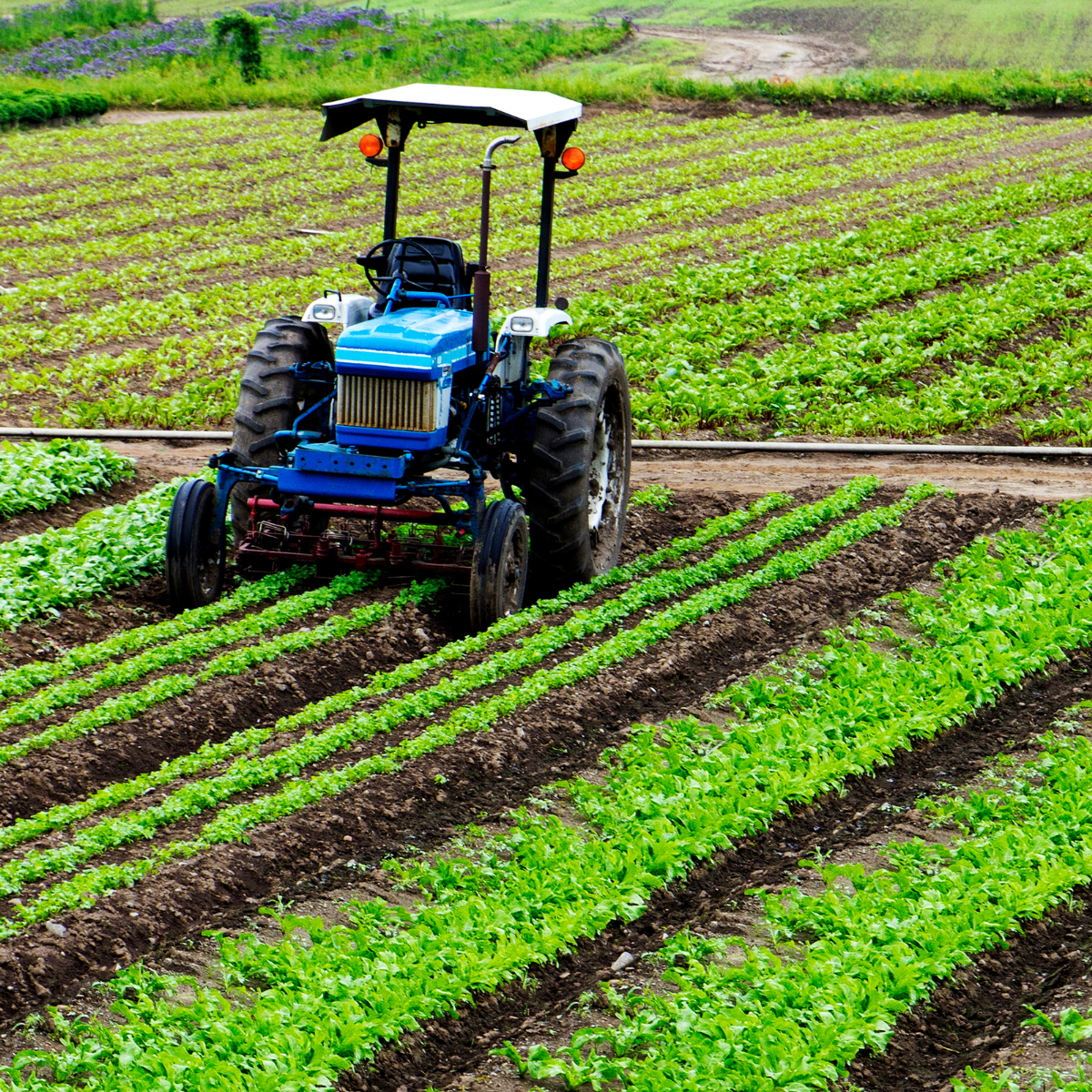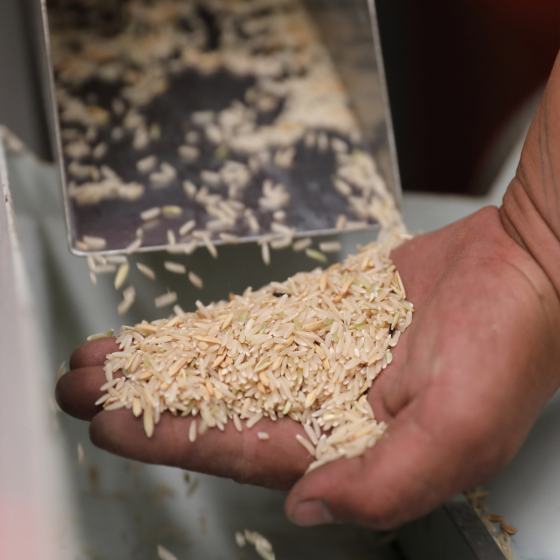Across the vibrant sprawl of Nigeria, a silent demographic revolution is underway. With a population projected to reach an astounding 400 million by 2050, and over 60% of its citizens currently under the age of 30, Nigeria sits on a ticking demographic dividend. This youthful energy, innovative spirit, and sheer numbers hold immense potential, a raw force capable of driving unprecedented economic growth and transforming the nation. Yet, for countless young Nigerians, this dividend remains largely unrealized, shackled by an invisible but formidable barrier: limited access to affordable, secure land. Imagine Ayodele, a spirited 28-year-old agricultural science graduate from Ibadan, brimming with ideas for a sustainable vegetable farm. He has the knowledge, the passion, and even a robust business plan. But every attempt to acquire suitable farmland hits the same wall: astronomical prices, opaque acquisition processes, and the endless bureaucratic labyrinth of land titling. His dream, like those of millions of his peers, remains confined to theoretical models, unable to take root. This anecdote is not unique; it is a poignant echo of a systemic constraint born from Nigeria’s unique and challenging land tenure system.
At the heart of this challenge lies the Land Use Act of 1978, a decree that centralized all land ownership under state governors, effectively transforming citizens from landowners to leaseholders. While ostensibly designed to democratize land access, its practical implications have been anything but. Instead, it has fostered a cumbersome bureaucracy, rife with corruption, and choked by the excruciating delays in obtaining Certificates of Occupancy (C-of-O). This legal framework, coupled with the lingering vestiges of Nigeria’s rentier economy, has allowed land to become a commodity for a select few, driving up costs, stifling productivity, and entrenching inequality. This article argues that comprehensive land reforms are not merely beneficial; they are an existential imperative for Nigeria. These reforms are essential to dismantle the rentier stranglehold on land, democratize access for the masses, and crucially, empower Nigeria’s burgeoning youth population to unleash their potential across agriculture, housing, and entrepreneurship. We will explore the formidable barriers to land access, propose actionable and scalable reforms, and highlight their transformative potential to unlock a demographic dividend that, for too long, has remained tragically untapped.
The Current State of Land Ownership in Nigeria
Nigeria’s land ownership landscape is a complex tapestry woven from statutory laws and customary practices, dominated by the enduring shadow of the Land Use Act of 1978. This seminal legislation fundamentally altered Nigeria’s land regime by vesting all land within a state in the Governor, who holds it in trust for the benefit of all Nigerians. While its stated aim was to simplify land administration and ensure equitable access, its practical consequences have been profound and often detrimental:
- Centralized Bureaucracy: The Act effectively centralized land administration, making governors the ultimate landlords. This has spawned a cumbersome, bureaucratic system where obtaining formal titles like the Certificate of Occupancy (C-of-O) is a tortuous, expensive, and often corrupt process.
- Corruption and Delays: The opacity inherent in this centralized system has become fertile ground for corruption, with “middlemen” and officials exploiting the process for personal gain. This leads to excruciating delays, often years long, for legitimate land owners to secure their titles, hindering investment and development.
This legal framework has inadvertently buttressed a rentier stranglehold on land:
- Concentration of Wealth: Land, particularly in lucrative urban and peri-urban areas, has become concentrated in the hands of wealthy elites, politically connected individuals, and speculators. These powerful actors acquire large tracts of land, not for productive use, but as an investment, driving up its perceived value.
- Exorbitant Costs: The insatiable demand coupled with artificial scarcity created by speculation and hoarding has led to skyrocketing land costs in major economic hubs like Lagos, Abuja, and Port Harcourt. This effectively prices out young people and aspiring entrepreneurs who lack the initial capital to acquire land for farming, housing, or business ventures.
- Land Hoarding: A significant amount of developable land in prime locations lies fallow, deliberately held undeveloped by speculators who are banking on future appreciation. This reduces the available supply for productive use, exacerbating scarcity and high costs.
The impact on Nigerian youth is particularly severe:
- Limited Access to Productive Assets: Without secure and affordable access to land, young people are severely constrained in their ability to engage in agriculture, build affordable housing, or establish small and medium-sized enterprises (SMEs) that require physical space.
- High Rental Costs: For those who can’t buy, exorbitant rental costs in urban centers consume a disproportionate amount of disposable income, stifling savings, investment, and ultimately, entrepreneurship.
- Urban Sprawl and Informal Settlements: As affordable land becomes scarce, young, aspiring populations are pushed to the fringes of urban centers, leading to unplanned urban sprawl, the proliferation of informal settlements lacking basic amenities, and increased commuting burdens.
These constraints have far-reaching economic and social consequences:
- Reduced Agricultural Productivity: Despite Nigeria boasting over 84 million hectares of arable land, only 46% is currently cultivated, according to the Food and Agriculture Organization (FAO). The inability of young, energetic farmers to access and secure this land directly contributes to low agricultural productivity, hindering food security efforts. Studies show that land tenure insecurity is a major limitation to adopting sustainable agricultural practices (SAPs), as farmers with secured ownership are more likely to invest in long-term improvements.
- Rising Unemployment and Youth Restiveness: Lack of land for productive ventures contributes to rampant youth unemployment. Frustration and despair arising from limited opportunities can fuel social unrest and exacerbate insecurity.
- Perpetuated Inequality: The concentration of land ownership perpetuates socio-economic inequality, as access to this fundamental productive asset becomes a privilege of the few, locking a significant portion of the youth out of wealth creation and social mobility.
Barriers to Land Access for Nigeria’s Youth
Nigeria’s youth face a multi-faceted labyrinth of barriers when attempting to access land, ranging from archaic legal frameworks to deep-seated cultural norms and predatory economic practices.
Legal and Institutional Barriers:
- Complex and Costly Land Titling: The process of obtaining official land titles, like the Certificate of Occupancy (C-of-O) or Governor’s Consent, is notorious for its complexity, requiring numerous permits, approvals, and protracted bureaucratic steps. This complexity directly translates into high costs, including official fees, unofficial charges, and legal expenses, making it prohibitive for most young individuals.
- Lack of Transparency in Land Allocation: State governments, vested with land ownership by the Land Use Act, often operate opaque land allocation systems. This lack of clear, public information about available land, allocation criteria, and processes creates fertile ground for corruption and favoritism, disadvantaging those without political connections.
- Gender Disparities: Women, particularly young women, face additional and often formidable hurdles. Despite constitutional provisions for equality, customary land tenure systems, prevalent in many rural areas, often discriminate against women’s inheritance and ownership rights, limiting their access to and control over land for farming or housing. This is a significant barrier given the crucial role of women in agriculture.
Economic Barriers:
- Skyrocketing Land Prices: Fueled by speculation and high demand in rapidly urbanizing areas, land prices in major economic hubs like Lagos, Abuja, and Port Harcourt have soared to prohibitive levels. A plot of land in prime Lagos areas can cost hundreds of millions of Naira, effectively creating an insurmountable barrier for young, aspiring landowners or entrepreneurs.
- Limited Access to Credit: Even if land is available, young people typically lack the collateral or established credit history required by conventional banks for large loans to purchase or lease land. Existing agricultural finance schemes are often insufficient or inaccessible to youth-led initiatives, with studies highlighting that access to credit is crucial for youth involvement in agriculture, even with land access.
Cultural and Social Barriers:
- Customary Land Tenure Systems: In many rural and peri-urban areas, customary laws, rather than statutory laws, still dictate land ownership and inheritance. These systems often favor older generations, male heirs, or traditional rulers, marginalizing young people, especially women, from gaining control over productive land. Over 94% of land used for rice production in some studies were acquired through inheritance, indicating the dominance of traditional methods over market-based access (ResearchGate, 2021).
- Inheritance Practices: Traditional inheritance patterns can lead to fragmentation of family land into uneconomical plots, or exclude younger, more innovative individuals from inheriting viable land units, stifling their entrepreneurial aspirations in agriculture. Land fragmentation has been identified as a major reason for the subsistence nature of Nigerian agriculture.
Speculative Practices:
- Land Banking by Wealthy Individuals and Corporations: Large corporations and wealthy individuals frequently engage in “land banking,” acquiring vast tracts of land (often cheaply from vulnerable communities) and holding onto them undeveloped, purely for speculative future value appreciation. This artificially inflates land prices and restricts its availability for productive use.
- Inefficient Land Markets: Nigeria’s land markets are characterized by a lack of reliable data, fragmented information, and weak regulatory oversight. This inefficiency creates opportunities for middlemen and speculators to exploit price disparities and information asymmetry, further contributing to inflated costs and limiting genuine access.
The Case for Land Reforms: A Crucial & Urgent Imperative
The constellation of barriers facing Nigeria’s youth in accessing land presents a compelling, indeed urgent, case for comprehensive land reforms. This is not merely an ideological pursuit; it is a pragmatic necessity for economic vitality and social stability.
- Why Land Matters for Youth Productivity – And Why Agricultural Policies Alone Fall Short:
Land is arguably the most fundamental productive asset. For Nigeria’s youth, secure and affordable land access provides:
- A Foundation for Agriculture: It offers the literal ground upon which modern, mechanized, and sustainable farming can flourish, transforming agriculture from subsistence to a profitable, technology-driven industry.
- A Springboard for Housing: Access to land allows young people to build affordable homes, fostering stable communities and reducing the burden of exorbitant rents, thereby freeing up capital for investment.
- A Catalyst for Entrepreneurship: Many youth-led SMEs, from processing plants to tech hubs, require physical space. Land provides the secure base for these ventures to establish, grow, and employ others.
While Nigeria has, over the years, introduced various agricultural policies such as Agricultural Transformation Agenda (ATA) – 2011, Growth Enhancement Support Scheme (GESS) – 2012, National Agricultural Technology and Innovation Policy (NATIP) – 2022, National Development Plan (2021–2025) aimed at boosting food production and promoting farm estates and input subsidies – their impact on broad land access has been limited and often superficial. These policies have largely been production-centric, focusing on inputs, credit, or training. For instance, the E-wallet programme increased fertiliser trees adoption, and Fadama programs aimed for year-round cropping (ResearchGate, 2021). However, these interventions often operate within the existing restrictive land tenure system, rather than fundamentally reforming it.
The inherent problem is that even the best agricultural policies designed to provide inputs, training, or financial support cannot overcome the foundational insecurity and prohibitive cost of land access. Farmers with insecure tenure are less likely to invest in long-term soil improvements, tree crops, or modern irrigation systems. Without guaranteed access and ownership rights, young farmers remain hesitant to adopt climate-smart agriculture practices, develop farm infrastructure, or even apply for land-backed loans. The most recent agricultural policies, while commendable in intent, have not fundamentally altered this reality; they have merely put band-aids on a gaping wound. This makes radical land reform not just crucial, but urgently necessary, to allow any other agricultural policy to truly take root and flourish.
Ultimately, democratizing land access has the potential to address several of Nigeria’s most pressing challenges simultaneously: food insecurity, rampant youth unemployment, and escalating urban overcrowding.
- Global Examples of Successful Land Reforms:
Nigeria is not alone in grappling with complex land issues. Several nations have implemented innovative reforms with positive outcomes:
- Rwanda: Faced with post-genocide reconstruction, Rwanda embarked on an ambitious land tenure regularization program. Through digitized land registries and a systematic land registration process, it formalized land rights for millions, including women. This clarity has significantly boosted agricultural investment and provided youth with securer access. Rwanda has also explored youth-focused land allocation programs to encourage agricultural engagement.
- Kenya: Through the enactment of the Community Land Act (2016), Kenya recognized and provided for the registration of community land rights, empowering local communities to manage their ancestral lands. Additionally, initiatives like community land trusts are emerging, designed to hold land in perpetuity for affordable access by young, aspiring farmers, preventing speculation and ensuring land remains for productive community use.
- Brazil: Post-dictatorship, Brazil implemented significant land redistribution programs, particularly benefiting smallholder farmers and agrarian reform settlers. While complex and ongoing, these reforms aimed to address historical land concentration, granting formal titles and supporting youth cooperatives in agriculture, leading to improved food production and reduced rural poverty in many areas.
These examples underscore that effective land reform is achievable, leveraging technology, clear policy, and community engagement.
- Nigeria’s Unique Opportunity:
Nigeria stands at a pivotal moment, uniquely positioned to benefit from comprehensive land reforms:
- Large Youth Population: The sheer scale of Nigeria’s youth demographic presents an unparalleled opportunity. Empowering this segment with land access can unleash a wave of productivity previously unimaginable.
- Vast Untapped Resources: With over half of its arable land uncultivated and significant urban spaces ripe for planned development, Nigeria possesses the physical resources to absorb this empowered youth.
- Growing Tech Ecosystem: Nigeria’s burgeoning tech industry, particularly in Lagos and Abuja, offers a ready-made platform for implementing cutting-edge land management solutions. Technologies like Geographic Information Systems (GIS) mapping for identifying and inventorying land, and blockchain for secure and transparent land titles, can revolutionize the land administration process, reducing fraud and increasing efficiency. This domestic tech capacity is a distinct advantage.
Proposed Land Reforms to Empower Nigeria’s Youth
To effectively harness Nigeria’s demographic dividend, a multi-pronged approach to land reform is essential, targeting legal, economic, technological, and community-based solutions.
- Legal and Policy Reforms:
Amend the Land Use Act:
- Decentralize Land Administration: Shift significant powers from state governors to local government areas (LGAs) for land administration, titling, and allocation. This will bring land governance closer to the people, reduce bottlenecks, and potentially speed up C-of-O processing.
- Simplify and Reduce Costs for C-of-O: Streamline the bureaucratic hurdles involved in obtaining Certificates of Occupancy and drastically reduce the associated fees and unofficial charges. Implement fixed, transparent fee structures.
Youth-Focused Land Allocation Policies:
- Reserve Land for Youth: Mandate that a specific percentage of state-controlled land, particularly newly acquired or reclaimed land, be reserved exclusively for young farmers and entrepreneurs, perhaps through long-term leases rather than outright sale initially.
- Subsidized Land Leasing Programs: Introduce programs that offer subsidized land leases to youth-led cooperatives and agricultural ventures, making large-scale farming more accessible.
Gender-Inclusive Policies:
- Constitutional Enforcement: Actively enforce constitutional provisions for gender equality in land ownership and inheritance.
- Targeted Programs: Implement programs that specifically support young women in agriculture and property ownership, challenging discriminatory customary practices through legal literacy campaigns and land clinics.
- Economic Interventions:
Curbing Land Speculation:
- Taxes on Undeveloped Land: Impose significant annual taxes on large tracts of undeveloped land, particularly in urban and peri-urban areas, to discourage land banking and hoarding. This will incentivize owners to either develop the land or release it to the market.
- Regulate Land Markets: Establish robust regulatory frameworks for land transactions, including public registries of land prices and ownership, to improve transparency and stabilize prices by curbing speculative bubbles.
Access to Finance:
- Low-Interest Loan Programs: Create specialized, low-interest loan programs, perhaps guaranteed by the government, specifically designed for young people to purchase, lease, or develop land for agricultural, housing, or entrepreneurial purposes.
- Land-Backed Microfinance: Partner with microfinance institutions and commercial banks to develop innovative financial products that accept secure land titles (or even long-term leases) as collateral, providing young people with access to much-needed capital for their ventures.
- Technological Innovations:
Digitized Land Registries:
- Blockchain-Based Land Titling: Implement a nationwide, secure, and immutable blockchain-based land titling system. This technology can drastically reduce fraud, improve transparency, eliminate multiple claims on the same parcel, and speed up transaction times.
- GIS Mapping: Utilize Geographic Information Systems (GIS) mapping to accurately survey, demarcate, and register all land parcels. This can help identify unused public land available for allocation and streamline planning processes.
Mobile Platforms for Land Access:
- Land-Connect Apps: Develop user-friendly mobile applications that connect young people directly with verified, available land for lease or purchase from government inventories or certified private sellers, bypassing exploitative middlemen.
- Community-Based Solutions:
Land Cooperatives:
Encourage and support young people to form land cooperatives. By pooling resources, youth can collectively acquire larger tracts of land, benefit from economies of scale in farming, and gain stronger negotiating power
Community Land Trusts:
Establish community land trusts, particularly in rural and peri-urban areas. These trusts can hold land in perpetuity, ensuring its affordability for young, low-income farmers and residents, and protecting it from speculative pressures.
- Capacity Building:
Modern Farming Techniques & Land Management: Provide extensive training programs for young farmers on modern, sustainable agricultural practices, climate-smart farming, and efficient land management techniques.
Youth Entrepreneurship Incubators: Support the development of agribusiness and real estate incubators that are explicitly tied to land access programs, providing young entrepreneurs with both physical space and mentorship.
Expected Outcomes of Land Reforms
The transformative potential of comprehensive land reforms in Nigeria, particularly for its youth, is immense, promising far-reaching positive impacts across economic, social, urban, rural, and environmental spheres.
Economic Empowerment:
- Increased Agricultural Productivity and Food Security: With secure and affordable land, young, energetic farmers can invest in modern techniques, leading to higher yields, increased food production, and ultimately, enhanced national food security. This will reduce Nigeria’s reliance on food imports and stabilize prices. Secure land tenure is directly linked to increased agricultural productivity and food access.
- Growth of Youth-Led SMEs: Land access will fuel the growth of youth-led Small and Medium-sized Enterprises (SMEs) in agribusiness (processing, packaging, logistics), real estate development, and even tech (e.g., agri-tech startups), creating thousands of new jobs.
- Diversification of Economy: Shifting investment from land speculation to productive land use will help diversify Nigeria’s economy away from its oil-dependent rentier model, fostering a more resilient and sustainable economic base.
Social Inclusion:
- Reduced Inequality: Democratizing access to land as a productive asset will significantly reduce socio-economic inequality, empowering more youth from diverse backgrounds to participate in wealth creation and climb the economic ladder.
- Empowerment of Young Women: Explicit gender-inclusive policies in land reform will directly empower young women, granting them secure rights to farm, build homes, and establish businesses, leading to increased household income and broader gender equality.
- Reduced Youth Restiveness: By providing tangible economic opportunities and a sense of ownership, land reforms can significantly reduce youth unemployment, frustration, and engagement in illicit activities, thereby improving social stability.
Urban and Rural Development:
- Reduced Pressure on Urban Centers: As rural land becomes more accessible and viable for productive ventures, it can reduce the rural-urban migration, lessening the immense strain on overstretched urban infrastructure and services.
- Planned Urban Expansion: Transparent land registries and better land management can facilitate more planned and sustainable urban expansion, ensuring affordable housing for young people and preventing the growth of informal settlements.
- Revitalization of Rural Economies: Secure land tenure encourages long-term investment in rural areas, leading to infrastructure development, improved social amenities, and more vibrant rural economies.
Sustainability:
- Promotion of Sustainable Land Use: Younger, tech-savvy farmers are often more receptive to adopting sustainable agricultural practices (e.g., precision farming, organic methods, water-saving techniques) when they have secure tenure and long-term investment horizons. This can reduce land degradation and environmental pollution.
- Reduction in Land-Related Conflicts: Transparent, digitized land titling systems can drastically reduce land disputes, conflicts, and litigation, which currently consume vast resources and often turn violent in various parts of Nigeria. This fosters a more peaceful and stable environment for development.
Challenges and Mitigation Strategies
While the case for land reform is compelling, implementing it in Nigeria will face formidable challenges. Foresight and strategic mitigation are essential for success.
Resistance from Elites:
Challenge: The most significant hurdle will be the vehement resistance from landed elites, speculators, and politically connected individuals whose wealth and influence are directly tied to the existing opaque and rentier land system. Reforms threaten their entrenched control and profitability.
Mitigation:
- Strategic Dialogue and Engagement: Engage these stakeholders in dialogue, emphasizing the long-term benefits of a diversified, stable economy for all, including themselves, rather than short-term speculative gains.
- Incentivize Compliance: Offer tax breaks or other economic incentives for elites who cooperate by developing their land or making it available for productive use (e.g., through long-term leases to youth cooperatives) rather than hoarding.
- Political Will and Courage: The government must demonstrate unwavering political will, prepared to confront powerful interests for the greater good. This may involve leveraging public support and international backing.
Corruption in Implementation:
Challenge: The very bureaucracy slated for reform is often deeply entrenched in corrupt practices, posing a risk that reform efforts themselves will be undermined or hijacked for illicit gains.
Mitigation:
- Technology as a Disrupter: Aggressively deploy blockchain for immutable land records and GIS mapping for transparency. These technologies minimize human interference, reduce opportunities for bribery, and create an auditable trail.
- Strong Oversight and Enforcement: Establish independent oversight bodies with powers to investigate and prosecute land fraud.
- Whistleblower Protection: Implement robust protection for whistleblowers reporting corruption in land administration.
Funding Constraints:
Challenge: Comprehensive land reform, including surveying, digitization, capacity building, and potential compensation mechanisms, requires significant financial investment, often beyond current government budgets.
Mitigation:
- International Donor Partnerships: Secure funding and technical assistance from international development partners (e.g., World Bank, African Development Bank, USAID) keen on sustainable development and youth empowerment.
- Private Sector Investment: Attract private sector investment through Public-Private Partnerships (PPPs) in land digitalization and development. Land taxes and fees from the new, transparent system can also generate revenue to sustain the reforms.
- Targeted Use of Freed Funds: Demonstrate clear allocation of funds saved from subsidy removal towards these critical reforms.
Cultural Resistance:
Challenge: Customary land tenure systems and traditional leadership structures, while deeply ingrained, may resist changes that appear to undermine their authority or traditional practices, particularly concerning inheritance rights for women or youth.
Mitigation:
- Inclusive Engagement: Involve traditional leaders, community elders, and youth representatives directly in the reform process from the outset. Foster dialogue to explain benefits and find mutually acceptable solutions that respect tradition while advancing modern rights.
- Awareness and Education: Conduct extensive public awareness campaigns in local languages using various media (radio, community meetings, social media) to educate communities about the benefits of secure land rights, especially for women and youth.
- Phased Implementation: Implement reforms in a phased manner, starting with pilot projects in receptive communities and demonstrating tangible benefits before scaling up.
Unleash the Unbound Potential of Nigeria’s Youth
The time for incremental changes is over. Nigeria stands at a precipice, its future hinged on whether it can courageously confront the legacy of its rentier economy and truly liberate its most valuable asset: its youth. The Land Use Act, once intended to be a liberator, has become a chain. It is time to forge new links, links of transparency, equity, and opportunity. We call upon the Nigerian government, particularly the executive and legislative arms, to prioritize and aggressively pursue comprehensive land tenure reform. This must include:
- Immediate action on amending the Land Use Act to decentralize authority and simplify titling processes, removing the bureaucratic stranglehold that renders even well-intentioned agricultural policies ineffective.
- Developing and rigorously implementing youth- and gender-focused land allocation policies, ensuring tangible access for those who truly need it, rather than just offering inputs to farmers who lack secure tenure.
- Investing strategically in cutting-edge technology – blockchain, GIS mapping, and mobile platforms – to build an ironclad, transparent land administration system that combats the corruption that plagues current land allocation and stifles agricultural investment.
- Engaging with all stakeholders, from powerful elites to grassroots communities and international partners, to build consensus and mobilize resources for this national endeavor, making it clear that the current agricultural challenges are fundamentally rooted in land insecurity.
To the private sector, we urge you to see beyond the immediate returns of speculation and invest in the long-term prosperity that secure land tenure brings. Support youth-led agribusinesses, partner in developing sustainable housing, and champion transparent land markets. Your investments will only truly flourish when the ground beneath them is secure and accessible to all.
To Nigeria’s vibrant youth, stay resilient, form cooperatives, demand transparency, and be prepared to seize the opportunities that these reforms will unlock. Your ingenuity, coupled with secure land, can turn Nigeria’s demographic dividend into its economic destiny.
The earth beneath Nigeria’s feet holds not just oil, but the promise of a bountiful future rooted in sustainable productivity. Let us work together to unshackle that potential, ensuring that every young Nigerian has a firm, secure piece of that earth to build their dreams upon. The urgency of this reform cannot be overstated; for without secure and equitable land tenure, all other efforts to achieve food security and economic growth will remain perpetually hobbled. The time to act is now.






